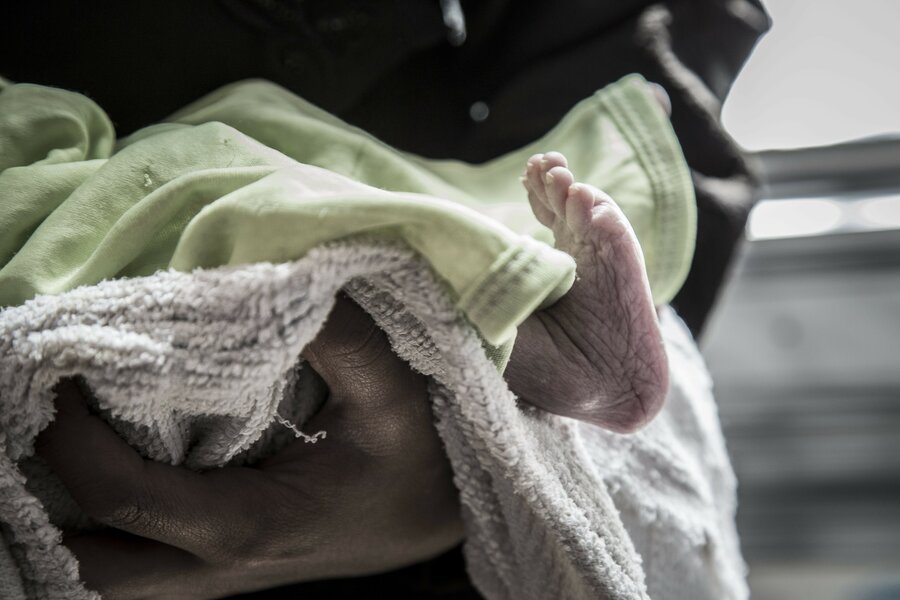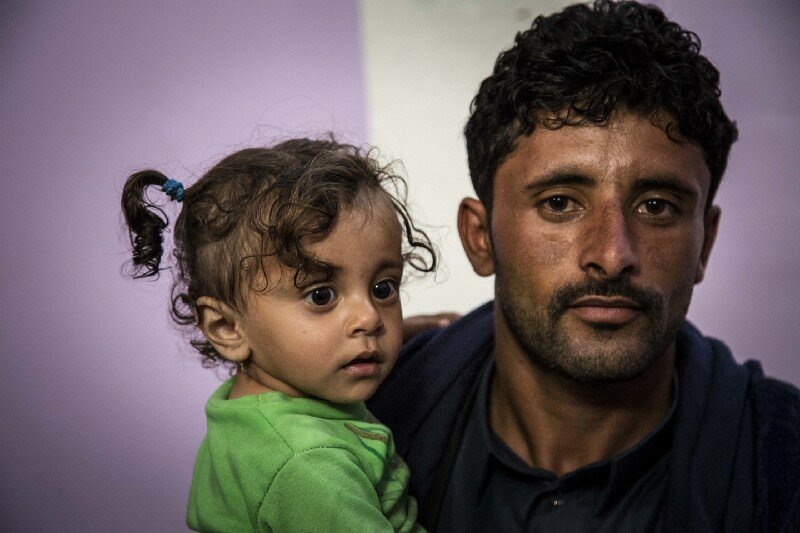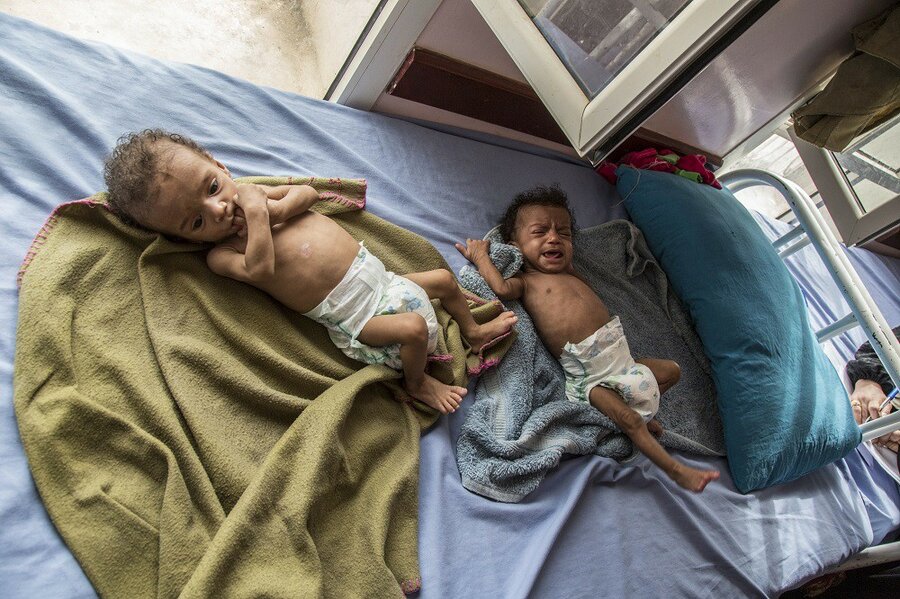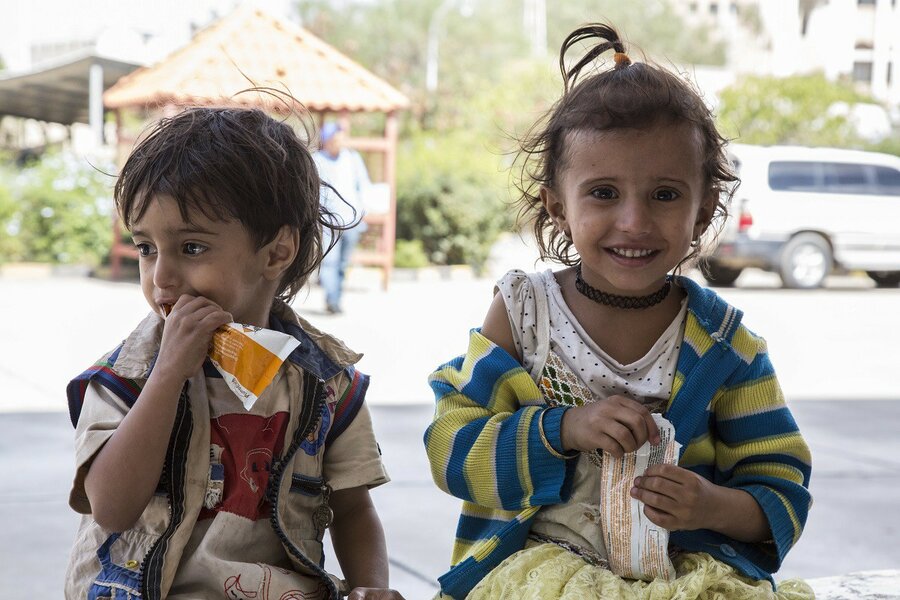Yemen: Trying to save a generation
"Even if the war ended tomorrow, the levels of malnutrition it has caused would cast a long shadow into the country's future," warns Gwenaelle Garnier, Nutrition in Emergency and preparedness and response consultant with WFP.

"The conflict further exacerbated an already alarming situation," Garnier explains, pointing out that currently 1.8 million Yemeni children are acutely malnourished, 400,000 of whom severely so. Malnutrition also affects 1.1 pregnant and breastfeeding women, with detrimental effects on the physical growth and brain development of their babies.
"Nutrition support is crucial to save lives now and to ensure the country gets back on its feet when peace comes."
Increasing four-fold the likelihood of early death, malnutrition is taking a heavy toll on Yemeni children. 19-months-old Angham survived cholera a few months ago, but her brother did not make it. "It breaks my heart to stand helpless, watching her suffer from one disease after the other," says her father Fares Ahmed, as he sits with her in Hajjah hospital.

Even those lucky enough to survive will face long-lasting consequences. Malnutrition affects children's performance at school, limits their future job opportunities and ability to work, and has a systemic cost in terms of lost productivity and health care expenses.
"The lack of nutritious food for mothers and children is threatening a whole generation," Garnier adds. "Nutrition support is crucial to save lives now and to ensure the country gets back on its feet when peace comes."
WFP is working with the Ministry of Health and other partners, including national and international NGOs, to treat and prevent moderate acute malnutrition.

Malnutrition treatment happens in local health facilities. WFP provides specialized nutritious supplements — a peanut paste enriched with nutrients for children under 5 and fortified cereals for pregnant and breastfeeding women, assists with the logistics of delivery and supports the training of local staff.
"When front lines move, you have to adapt day by day."
"Our ability to reach those in need is hindered by several factors: half of the clinics in the country are no longer functioning and people often struggle to reach them," Garnier says.
"And then, of course, there is the conflict. In some areas, you have to deal with two different sets of authorities in order to get permission for trucks to transit and for partners to operate. And when front lines move, your ability to access one place can change overnight. You have to adapt day by day," she continues.
In the clinics that are still working, conditions are dire. Equipment and supplies are scarce, staff are few and often work around the clock.

"There are some days when we have more children than beds, so we put three on a bed and lay the rest on mattresses on the floor," says Maika Mohamed Alaslemy, Head Nurse at Aslem health centre in Hajjah governorate.
"We work to save lives and preserve the future of Yemen."
"The medical workers here have not been paid for over three months and we do not get holidays or time off. We work under so much pressure out of our obligation to save lives and preserve the future of Yemen. It is the only thing that I can do from here," she adds.
To prevent more women and children from falling into malnutrition, WFP and partners also run prevention programmes. Trained community volunteers carry out screenings to identify children under 2 and pregnant and breastfeeding women who are not currently malnourished but are at risk, so that they can be given supplementary foods.

As of October 2018, WFP had provided nutrition support to 660,000 children under 5 and 640,000 pregnant and breastfeeding women.
"We need sustained resources and safe access to all parts of the country to reach all the children who are at imminent risk of death or life-long consequences from malnutrition," Garnier concludes.
According to the latest Integrated food security Phase Classification (IPC) analysis, which was released on 8 December 2018 by the Food and Agriculture Organization of the United Nations (FAO), the UN Children's Fund (UNICEF), WFP and humanitarian partners, 15.9 million people in Yemen are facing severe food insecurity and this figure could climb up to 20.1 million without food assistance.


